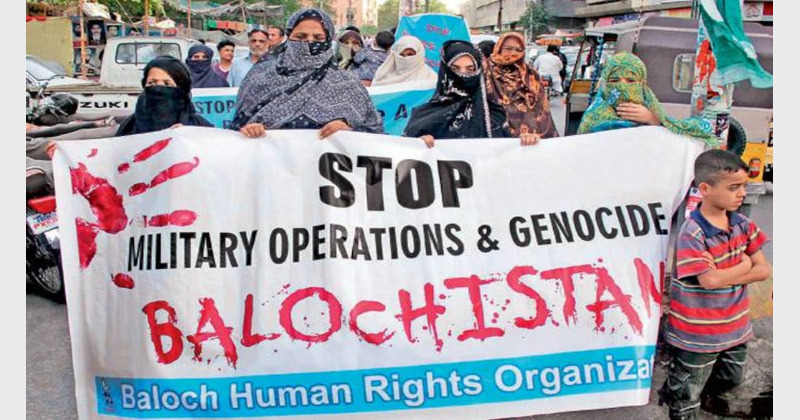The Government of Pakistan must guarantee the right to peaceful protest across the country, Amnesty International said today as the Baloch Long March protesters were forced to end their month-long sit-in protest in Islamabad following repeated harassment by the authorities.
Hundreds of women in the Baloch Long March journeyed about a thousand miles from Turbat in the southwestern province of Balochistan to the capital city, Islamabad to protest the alleged extrajudicial killing of young Baloch men late last year.
The peaceful protesters, consisting largely of families of victims of enforced disappearances including people as old as 80 and children as young as two years old, had been sleeping in near-freezing temperatures at the sit-in at the National Press Club, Islamabad since 22 December 2023. The Pakistani authorities mounted a campaign of disinformation against them and subjected them to repeated intimidation, arbitrary arrests and detentions.
“The Pakistani authorities should be ashamed of the harassment meted out to the Baloch Long March protestors. This is not the end the Baloch women would have hoped for when undertaking the perilous journey with their children to demand justice for their families. The authorities have been heartlessly indifferent to the plight and demands of the peaceful protestors camped out in the severe cold for the past month,” said Carolyn Horn, Programme Director, Law and Policy at Amnesty International.
“The denial of the rights to freedom of expression and peaceful assembly have compounded the tremendous social, financial and psychological costs borne by the families of the disappeared. The voices of the people must not be ignored in the run up to the national elections in Pakistan. Human rights must be upheld before, during and after the elections.”
‘Pain and helplessness’
Speaking with Amnesty International, protest organizer Mahrang Baloch said, “The anti-Baloch attitudes of the state, judiciary, media and state-aligned intellectuals have forced us to conclude this phase of our protest. Over the past month, our peaceful protest has been surrounded from all sides by police … (and) we have been subjected to harassment, profiling and threats on a daily basis.”
On 21 January, entry to the ‘International Oppressed Peoples Conference’ organized at the sit-in was denied by police through harassment of attendees and the placement of barbed wire around the area.
Previously, on 2 January, the police had prevented supplies of food, tents and blankets from reaching the sit-in protesters. Electricity to the protest site was also temporarily cut off with protestors complaining of extremely weak mobile signals that prevented them from issuing media updates from the protest site.
“We had to take turns to sleep because blankets were limited. But even then, the pain of sitting in the cold was better than the pain and helplessness we feel when we go back home,” said one of the protestors.
First Information Reports (FIRs) – which initiate criminal proceedings – were filed against protestors from across the country. Amnesty International verified at least 13 such FIRs from Balochistan (Naal, Kohlu, and Hub), Sindh (Karachi, Mirpur Khas and Khairpur), Islamabad and Khyber Pakhtunkhwa (Dera Ismail Khan). Protestors have been charged with a wide range of offences, including terrorism, sedition, unlawful assembly, rioting, hate speech, dacoity, unlawful use of loudspeakers and damage to public property.



